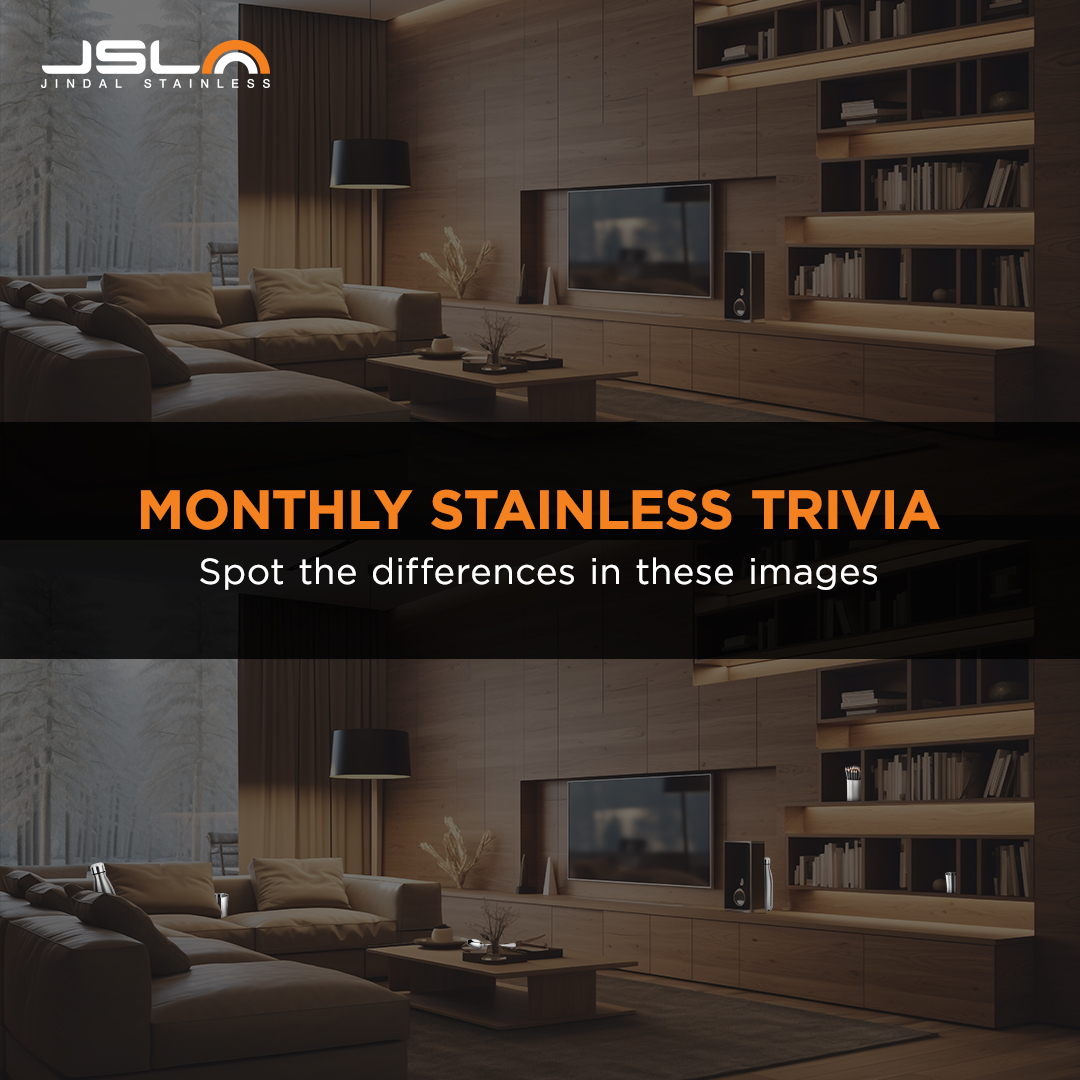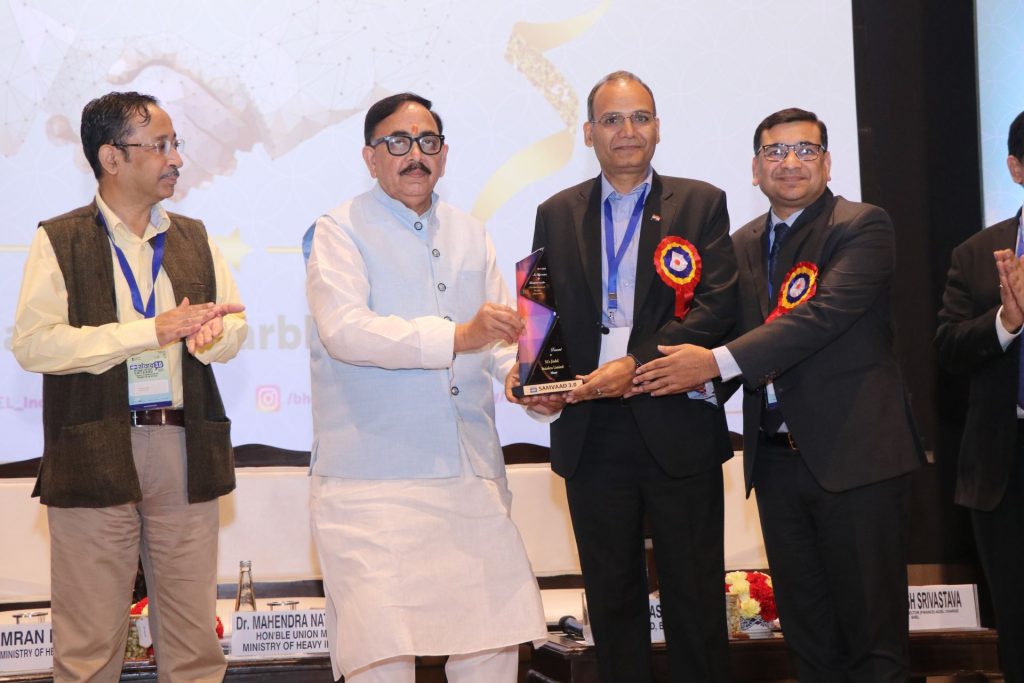
Monthly
Stainless Trivia
Fill in your answer below
Gurugram, November 13, 2023: Jindal Stainless, India’s largest stainless steel manufacturer, was felicitated by Bharat Heavy Electricals Limited (BHEL), at Bharat Mandapam, Pragati Maidan, New Delhi, during BHEL SAMVAAD 3.0 held recently. The felicitation was received for developing C276 cladded plates, used in thermal power plants, and alloy steel plates SA387 GR 91 (9 Cr 1 Mo), for application in super critical boilers. Earlier, C276 cladded plates as well as GR 91 plates were being imported from the European Union, China, and Japan.

Commenting on this development, Managing Director, Jindal Stainless, Mr Abhyuday Jindal, said, “We appreciate the indigenisation efforts of BHEL, and the Ministries of Heavy Engineering and Steel. As a Swadeshi company, it perfectly aligns with our motto of creating a self-sustainable India. Though we have been associated with BHEL for a long time, I especially acknowledge the role played by our operations, business development, R&D and other teams in executing this far-reaching project within a couple of years. With domestic availability of these products now, projects will be completed faster, and precious forex can be saved for the country. Besides, it’s always a matter of pride to contribute to the government’s mission of creating an Atmanirbhar Bharat.”
Through innovative research and several trials, Jindal Stainless developed indigenous world-class technology for the hot roll bonding process required to manufacture these products. The products supplied to BHEL were manufactured at the Hisar facility of Jindal Stainless. After successful pilot experiments, commercial scale experimentation was accomplished to establish the technology within a time span of 4-5 years.
Currently, these products are utilized within the absorber chamber of Flue-gas desulphurization (FGD) units within thermal power plants. The primary purpose of this absorber unit is to mitigate environmental emissions via a sequence of chemical reactions. The Ministry of Environment, Forest and Climate Change of India (MoEFCC) has issued new standards to reduce Sulphur dioxide, particulate matter, and nitrogen dioxide. In accordance with these directives, all thermal power plants are undergoing upgrades and modernization, integrating FGD systems across the nation.BHEL SAMVAAD is an interaction forum with local industry for strengthening the cause of Atmanirbhar Bharat. The event was attended by Union Minister for Heavy Industries, Dr Mahendra Nath Pandey along with senior officials from the Ministries of Heavy Industries as well as Steel; Department of Expenditure; Chairman and Managing Director & Board members of BHEL; Department for Promotion of Industry and Internal Trade (DPIIT), and representatives of local vendors, industry associations, academia and research institutes.
About Jindal Stainless
India’s leading stainless-steel manufacturer, Jindal Stainless, has an annual turnover of INR 35,700 crore (US $4.30 billion) in FY23 and is ramping up its facilities to reach 3 million tons of annual melt capacity in FY24. It has two stainless steel manufacturing facilities in India, in the states of Odisha and Haryana. Jindal Stainless has a worldwide network in 15 countries and one service centre in Spain. In India, there are 10 sales offices and six service centres. The company’s product range includes stainless steel slabs, blooms, coils, plates, sheets, precision strips, blade steel and coin blanks.
Integrated operations have given Jindal Stainless the edge in cost competitiveness and operational efficiency, making it one of the world’s top five stainless steel players (ex-China). Founded in 1970, Jindal Stainless continues to be inspired by a vision for innovation and enriching lives and is committed to social responsibility. The company boasts an excellent workforce, value-driven business operations, customer centricity and the best safety practices in the industry.
JSL remains committed to a greener, sustainable future, fueled by environmental responsibility. The company manufactures stainless steel using scrap in an electric arc furnace, the least greenhouse gas emission route since it enables 100% recyclability with no reduction in quality, thereby achieving a circular economy. The company aims to reduce carbon emission intensity by 50% until FY 2035 (from FY 2022 baseline levels of 1.91 tons CO2/tons of crude steel) and achieve Net Zero by 2050.